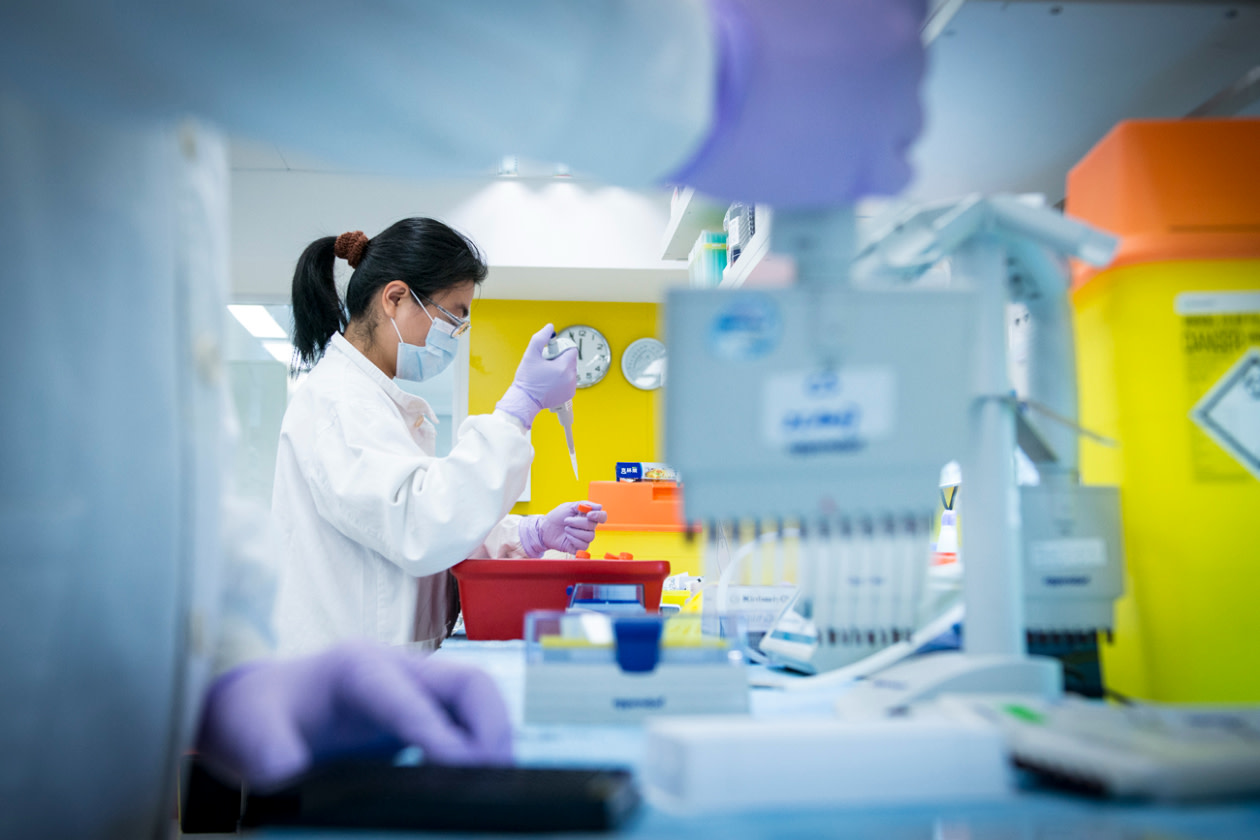Four years ago, the pandemic thrust the pharmaceutical sector into the spotlight.
While the UK grappled with a nationwide lockdown, Pfizer was winning the race to develop the first vaccine. Others followed, like AstraZeneca. Arguments over effectiveness and safety raged – never had vaccines been launched so quickly.
AstraZeneca produced a drug that was cost-effective and simple to distribute. Pfizer’s was expensive and needed sub-zero temperatures from lab to jab. Meanwhile, GlaxoSmithKline (GSK)’s vaccine efforts petered out, producing little but disappointing trial outcomes until it was too late to really matter.
The pandemic was somewhat of a minefield for the sector. Many players were able to book substantial revenues from selling vaccines. However, the margins on those revenues could be low and they soon subsided.
Globally, healthcare stocks performed better than the wider stock market when the pandemic first broke. But the performance fell back as it became clear this was no golden ticket for the drug makers.
This article isn’t personal advice and the past performance of these companies isn’t an accurate guide to their future. Investments and any income they produce fall as well as rise in value, so you could get back less than you put in. If you’re not sure about an investment, ask for financial advice.
AstraZeneca
Beating COVID-19, battling cancer and rare diseases
AstraZeneca (AZN), working in collaboration with scientists from Oxford, was quick to develop a vaccine. Experience working on the MERS virus that emerged a few years before helped.
Within a year of the first successful trials of any vaccine candidate, AstraZeneca delivered two billion doses of their own vaccine around the world.
Reports of side effects hindered the commercial success of the project, but AZN promised to deliver the drug at cost during the pandemic. So this was more of a reputational issue than a profit and loss problem.
Away from COVID-19, AZN was developing its Oncology portfolio at pace. It had fought off a takeover bid from Pfizer six years before. AZN argued the potential of its pipeline of anti-cancer treatments meant Pfizer’s offer far undervalued the business.
Since then, AZN has brought new drugs to market, offering clinical advances in the treatment of breast, lung and gastric cancers. Analysts are forecasting that these new treatments will be delivering tens of billions of dollars a year in new revenue by 2030.
Diversifying and expanding
The group’s diversified, spending almost $40bn buying Alexion Pharmaceuticals in the US.
Alexion specialises in, often serious, rare diseases. While AZN’s Oncology portfolio drugs will be prescribed to hundreds of thousands of patients each year, Alexion operates at the other end of the dial. These drugs tend to be expensive, as their development costs can only be shared out over a small group of patients.
AZN’s also constantly buying smaller biotech businesses that give it access to promising compounds that are progressing through the research and clinical trials process.
The group recently announced a $1bn deal to acquire Amolyt. This combination of developing their own research pipeline and then buying and selling smaller companies or development candidates from their existing portfolio has been a particular feature at AZN.
This helps to maintain and grow its dividend, until the cash flows from its major new cancer drugs builds up. This commitment to the dividend has contrasts with GSK, who recently cut its payout to shareholders.
On balance, AZN, led by CEO Pascal Soirot for over a decade, has been an extraordinary success story. It navigated through a period when older drugs were coming off-patent, supporting profits through M&A, while creating one of the most significant new drug portfolios of any major drug company.
Along the way it’s grown its revenues by almost 100% in the last decade, with profits nearly doubling.
Shareholders have done well, too. Dividends have been held or grown every year and the share price has more than doubled in 10 years. Remember though, yields are variable and no dividend is ever guaranteed.
GSK plc
Fighting back into contention
GSK plc, formerly GlaxoSmithKline, has gone down quite a different path in recent years. Whereas AZN has focused on building its Oncology portfolio, GSK has been more focused on restructuring itself.
Glaxo’s boom through the late 80s and 90s was down to developing blockbuster drugs and led to it being one of the world’s largest drug makers. But then the well dried up. In the first 20 years of the 21st century, Glaxo’s share price rose by less than 2%.
GSK now focuses on developing new medicines and vaccines. A blockbuster shingles vaccine, Shingrix is already a multi-billion dollars a year product. The company is now more optimistic about its research pipeline delivering meaningful new drugs than for many years.
Activist investors agitated strongly for change, highlighting the weak returns GSK had achieved, despite some real clinical strengths within the business. Since their arrival, the shares have performed somewhat better, with the stock now edging back towards its all-time high.
It’s not all plain sailing though.
Both GSK and its spun-out consumer division, Haleon, have been impacted by class action litigation. This is mostly in the USA by plaintiffs who argue they were injured by one of GSK’s early blockbuster drugs, Zantac.
While Haleon argues it has no case to answer, GSK has been settling cases out of court, although it says the plaintiffs’ science is deeply flawed.
GSK’s business has more clarity about it these days and their current pipeline of 71 assets is predicted to contain at least 12 major new products to be launched from 2025 onwards.
What’s next for AstraZeneca and GSK?
Both stocks have paved their own ways since the pandemic.
GSK has focused on transformation and renewal, AZN on maximising the potential of its Oncology and Cardiovascular portfolios, along with growing the Alexion rare diseases arm.
Both have plenty of potential within their new product pipelines, but as always it’s the execution of this potential that will drive investor returns.
There’s a risk that whatever they do, it could be insufficient to keep them in the market’s spotlight.
New classes of drugs, called GLP-1 and SGLT-2 inhibitors, are emerging. These seem to offer significant benefits in controlling diabetes and weight management.
Clinical demand for GLP-1 is intensifying as diabetes becomes more common.
Commercial demand for SGLT-2 is red hot. Novo Nordisk of Denmark and Pfizer are leading the charge currently, with others trying to edge in. Novo has grown to be Europe’s most valuable company as a result of the successes of weight loss drugs Ozempic and Wegovy, eclipsing its old rivals in the process.
Can the UK’s leading drug companies muscle in on these hot new markets?
Developing a new drug from scratch can take a decade or more. We expect there’ll be a scramble by the big pharmaceutical companies to buy smaller rivals with promising GLP-1 candidates under development as they try to catch up.
With robust cash flows coming from their existing portfolios AZN and GSK have the firepower to get involved if they see the right opportunity.
It’s been a long time since the pharmaceutical sector looked so interesting and the only certainty is that there will be changes ahead.
If you want help navigating these changes, why not leave it to an expert fund manager.
Steve Clayton is HL’s Head of Equity Funds and leads the HL Select funds team.
HL Select is a group of three funds focused on a small number of shares with long-term growth potential.
The HL Select funds are run by our sister company Hargreaves Lansdown Fund Managers Ltd.
Photo credit: CFOTO/Future Publishing via Getty Images


